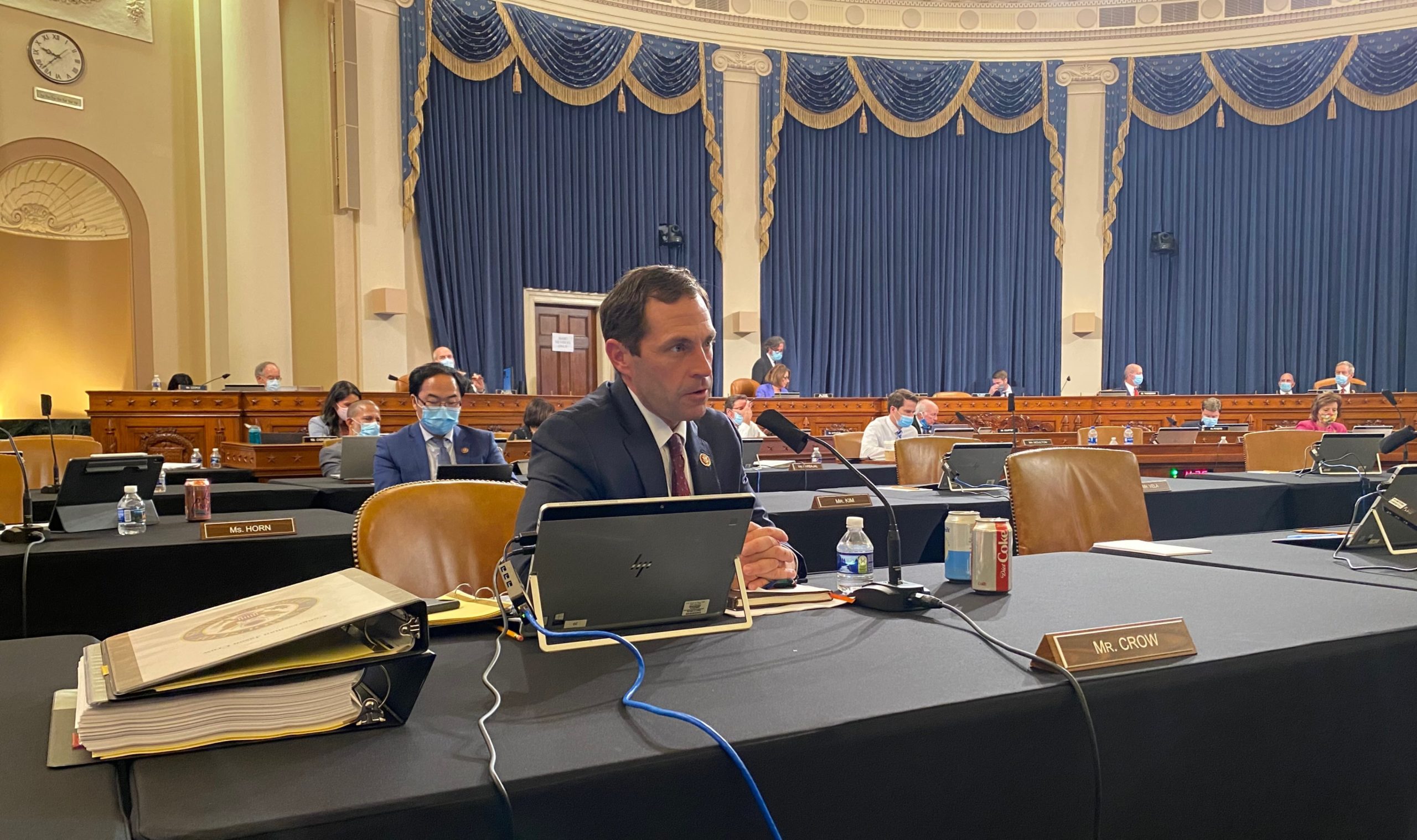
The House Armed Services Committee approved a mammoth $740.5 billion defense policy bill, teeing it up for a floor debate and vote later this month.
The House’s version of the National Defense Authorization Act passed 56-0 after only 14 hours.
It was a spot of bipartisan cooperation in Congress. Last year’s mark-up lasted almost 21 hours and passed largely along party lines.
If the NDAA makes it to the president’s desk, a number of provisions in the bill will help Colorado.
“We really made some progress on issues from military housing and environmental issues and climate change to bolstering our national defense,” said Democratic Rep. Jason Crow of Aurora.
On the other side of the aisle, GOP Rep. Doug Lamborn touted funding for defense research, weapons systems and $366 million in military construction in the Pikes Peaks region.
“This bill is good for Colorado’s Fifth Congressional District and for our nation,” he said in a statement.
The two Colorado Congress members worked together on some of the provisions, including the Defense Community Investment Act, which protects the office that helps bridge divides between military installations and the local communities around them.
“This helpful legislation will enhance the military value, resilience, and quality of life at our military installations,” Lamborn said in June.
They also worked on the DOD Water Act, which was included in the House version of the NDAA. It calls for better data collection and reoccurring assessments on water scarcity at military installations, an issue for many bases in the West.
And both stressed the bill has PFAs provisions, including increased information on the use of the foam and $1.5 billion for environmental remediation and cleanup at military installations. Crow said toxic chemicals have to be addressed.
“We can’t shortchange people’s health and welfare and people’s lives, particularly in Colorado where this is a problem. We have to make sure we’re getting out in front of it and we’re tackling it in a way that the people in Colorado deserve,” Crow said.
The House version of the NDAA also includes the Afghanistan Partnership and Transparency Act, which Crow worked on with GOP Rep. Liz Cheney of Wyoming. It would require the Trump Administration to engage with Congress on U.S. troop reduction in Afghanistan.
The bill includes a 3 percent pay raise for troops, a four-year pilot program at the service academies to address the problem of sexual assault and would limit President Trump’s ability to withdraw troops from Germany.
It also includes a provision that would remove Confederate names from bases within one year. The Senate version of the NDAA also has a similar proposal. Trump has threatened to veto the bill if it’s included, but now that it’s in both versions, that becomes difficult legislatively to do.
Still, Crow said name changes are the right thing to do.
“It’s way past time that we don’t have bases named after generals that seceded from the Union and fought to defend slavery,” he said.
The Senate has been debating its version this week and is expected to vote when the chamber returns for the July recess.









